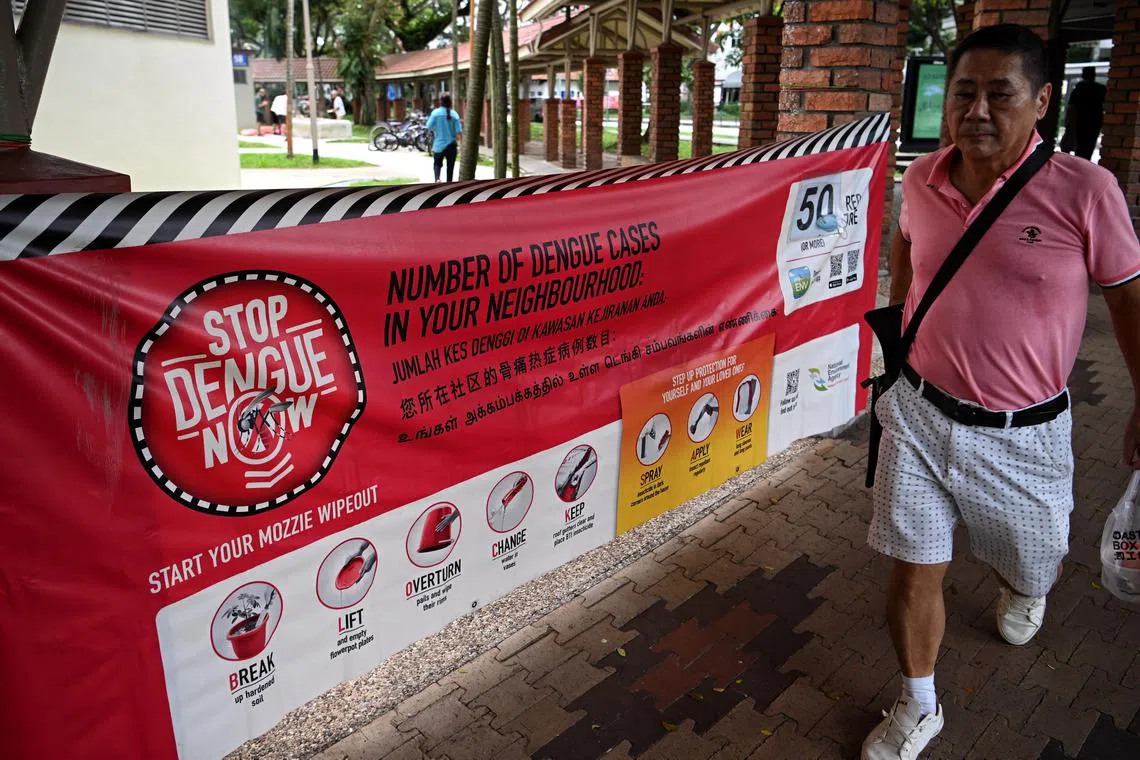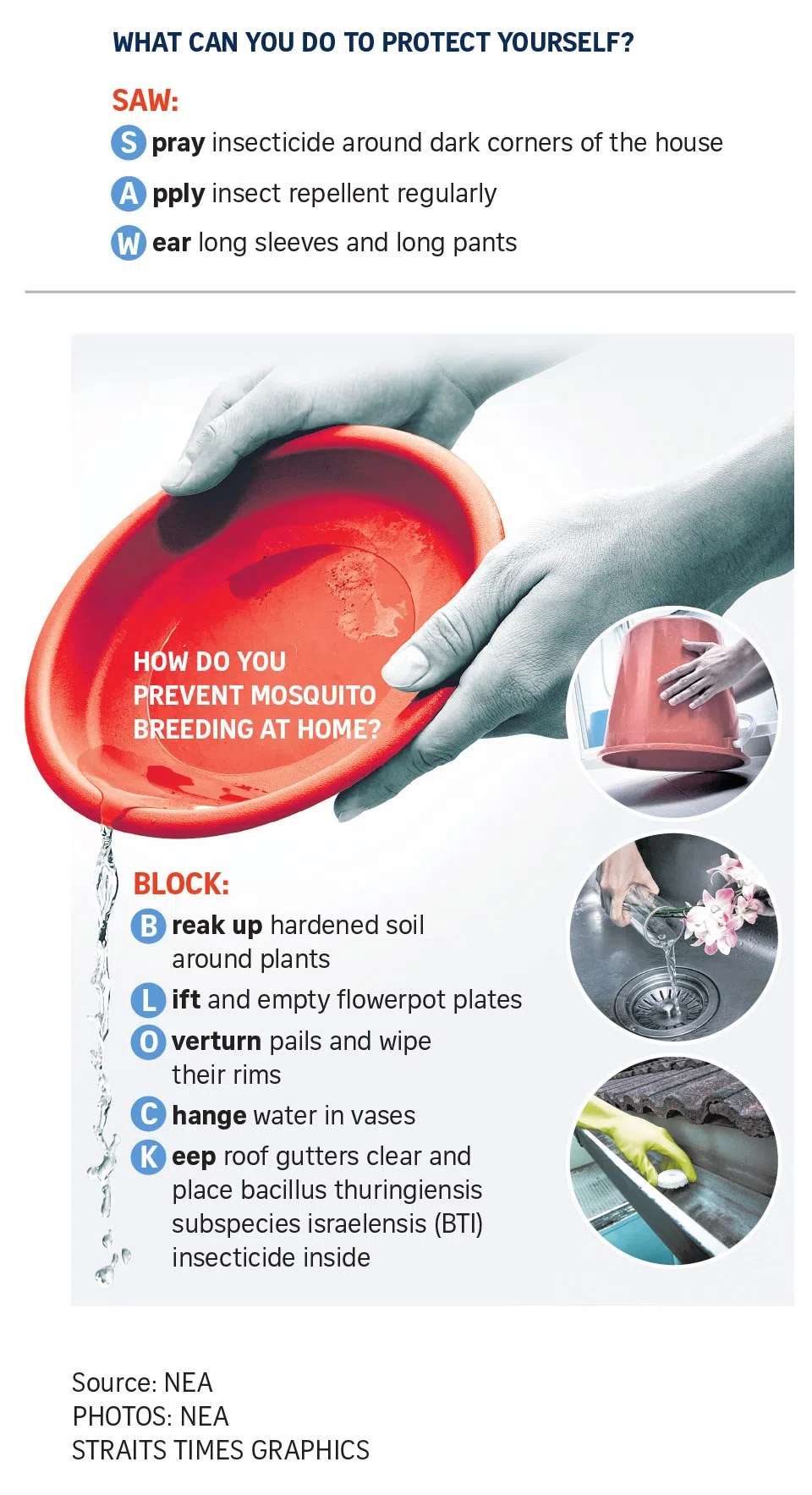High Aedes mosquito population might lead to dengue outbreak in 2023, public advised to be on alert: NEA
Sign up now: Get ST's newsletters delivered to your inbox

There have been more than 2,000 dengue cases reported since the beginning of the year, but the National Environment Agency is warning that it will get higher.
ST PHOTO: KUA CHEE SIONG
Follow topic:
SINGAPORE - A dengue outbreak is likely here with the warmer months of June to August approaching, amid an expected surge in the Aedes aegypti mosquito population detected in the community.
The National Environment Agency (NEA) said this mosquito population is transmitting the less common dengue virus serotype 3 (DENV-3), which many in the community remain susceptible to due to lack of exposure.
There have been more than 2,000 dengue cases reported since the beginning of the year, but NEA said this number is going to get higher, with the mosquito population already 16 per cent higher compared with numbers in February 2022.
There are currently 39 active dengue clusters in Singapore, and weekly cases since the beginning of the year have remained above 100.
NEA said: “It is critical that all residents and stakeholders take immediate action to suppress the Aedes mosquito population and break disease transmission.”
NEA shared the dengue outlook as part of the National Dengue Prevention Campaign, which was launched on Saturday.
Launching the event in Kampong Glam, Senior Parliamentary Secretary for Sustainability and the Environment Baey Yam Keng urged members of the public to take collective action to reduce mosquito breeding habitats in the fight against dengue.
NEA said that 2022 clocked the second-highest number of dengue cases in a single year,
This is six times more than the total number of cases reported in the whole of 2021, it added.
There were 911,000 mosquito inspections conducted in 2022, with NEA uncovering about 23,600 mosquito breeding habitats in dengue cluster areas.
Of this number, 66 per cent were found in homes, 26 per cent in public areas, and 3 per cent in construction sites.
Enforcement action has been taken against those found guilty of mosquito breeding, with 75 contractors charged in court for repeat offences and around 750 fines and 129 stop-work orders issued to construction sites, among others.
NEA on Saturday said that male Wolbachia-Aedes mosquitoes have been released at eight additional sites since July 2022
When Wolbachia-Aedes mosquitoes, which are genetically engineered male mosquitoes,
This brings the total coverage to about 30 per cent of all Housing Board blocks and 9 per cent of landed residential areas in Singapore.
While this is expected to bring down the Aedes aegypti population at release sites, NEA said that it is not a silver-bullet solution.
NEA added: “While the project is expected to bring down the Aedes aegypti mosquito population and reduce dengue transmission at release sites, it cannot replace community efforts to ensure good housekeeping.”
This involves removing stagnant pools of water in homes and turning over all water storage containers to prevent liquid accumulation.
But beyond these preventative measures, NEA encouraged those already residing in dengue cluster areas to protect themselves and their loved ones.
This involves spraying insecticide in dark corners around the house, applying insect repellant regularly and wearing long-sleeve tops and long pants.


